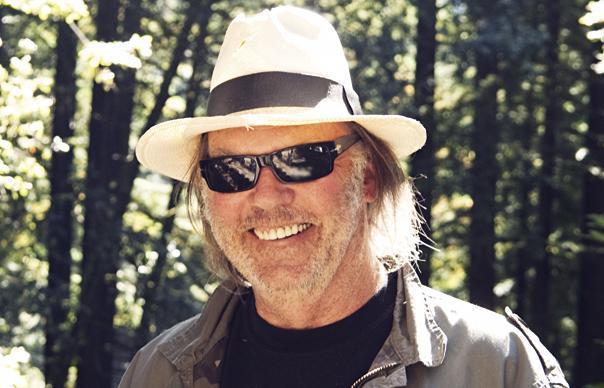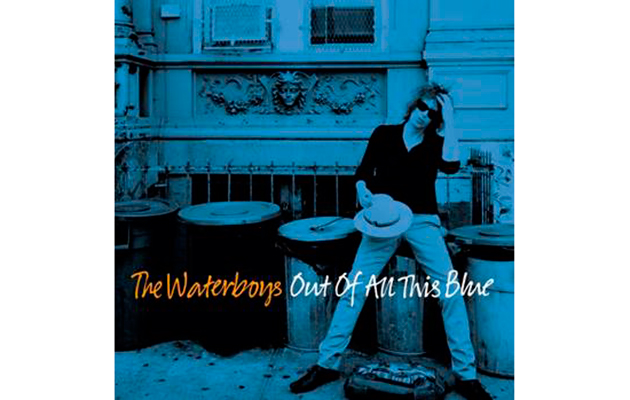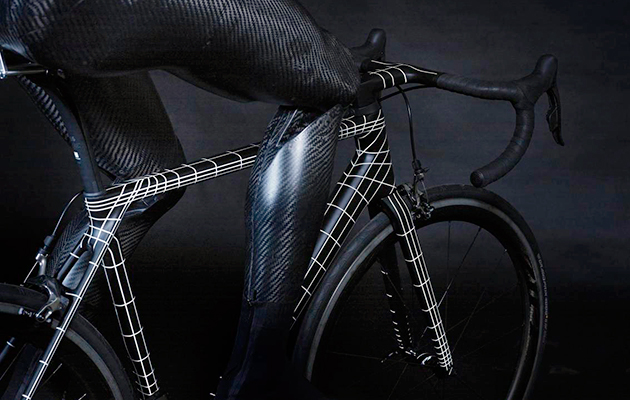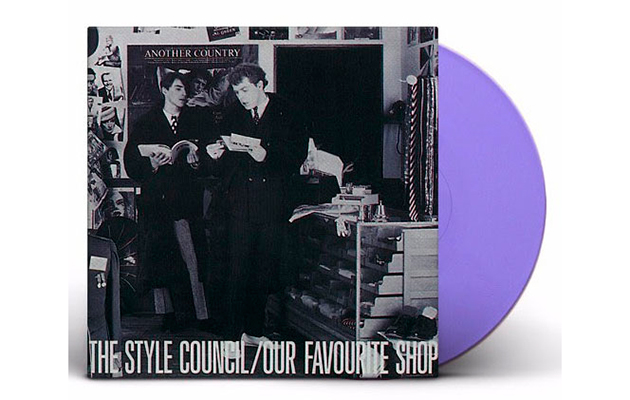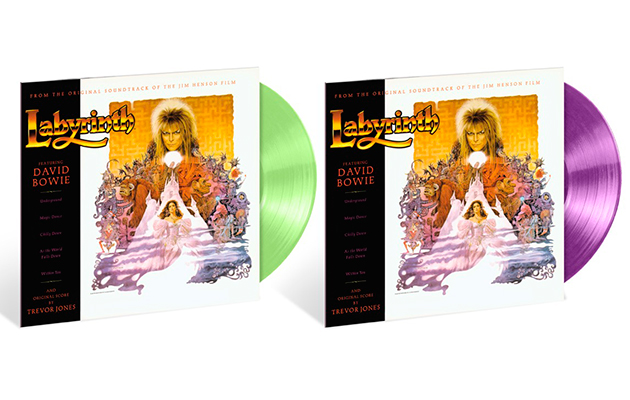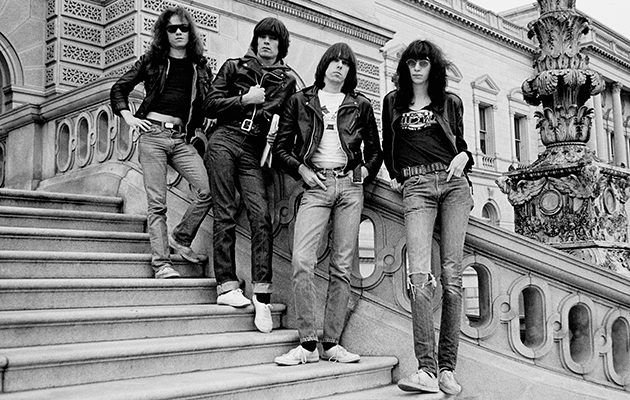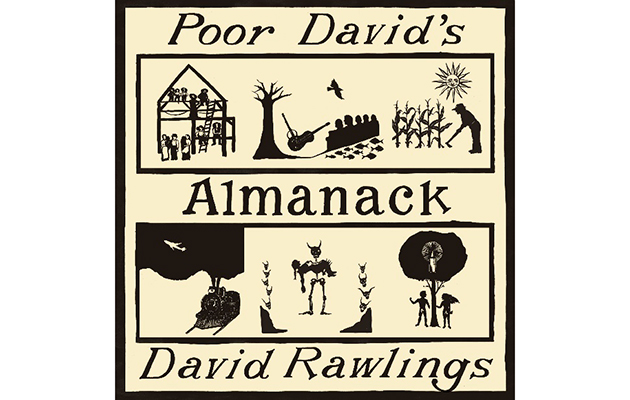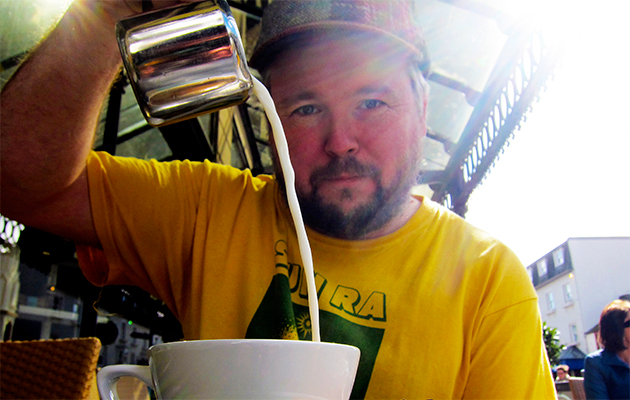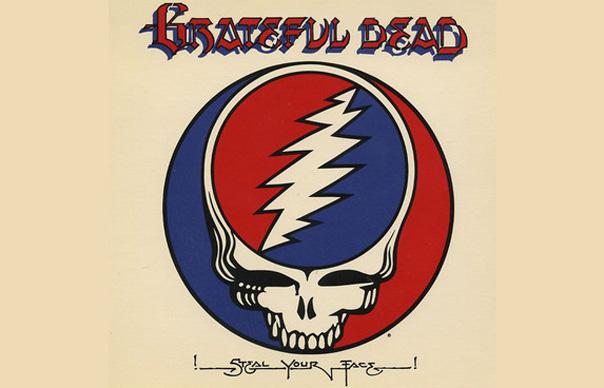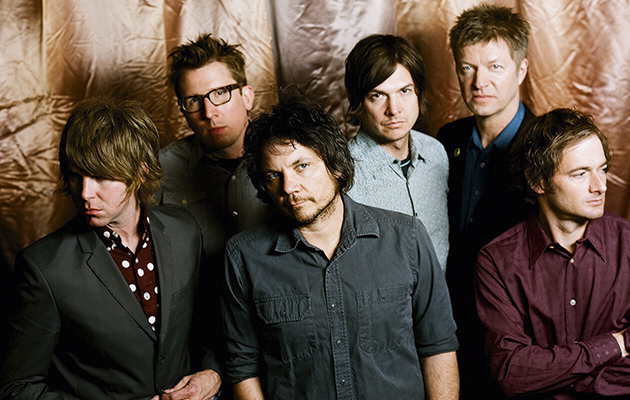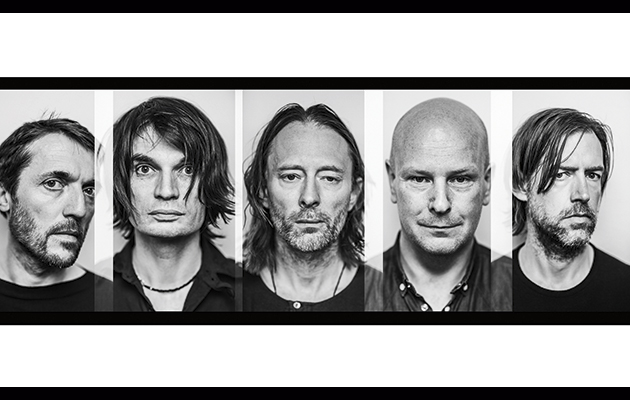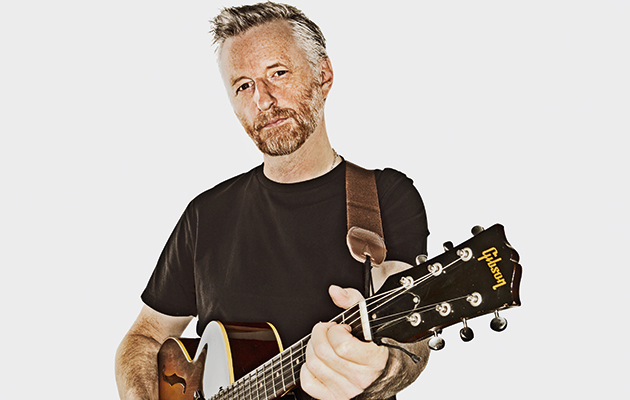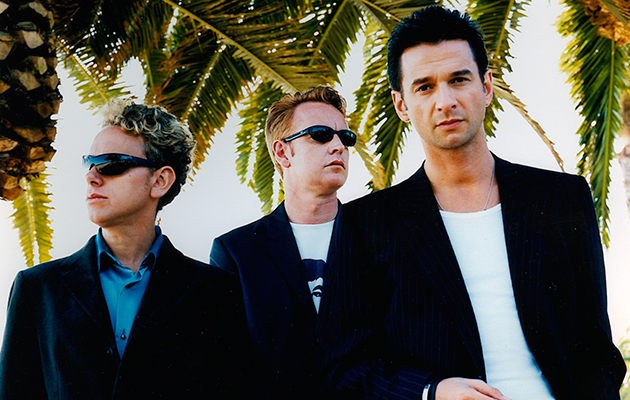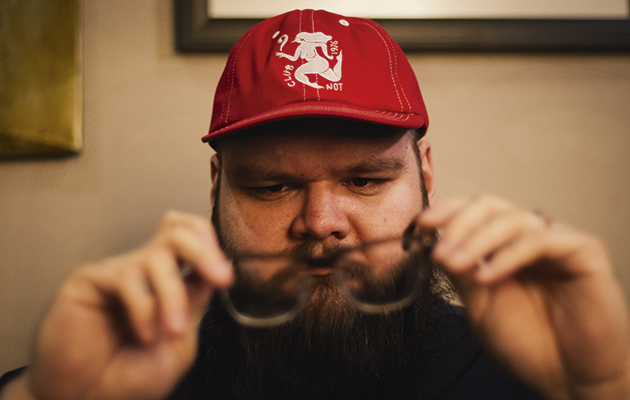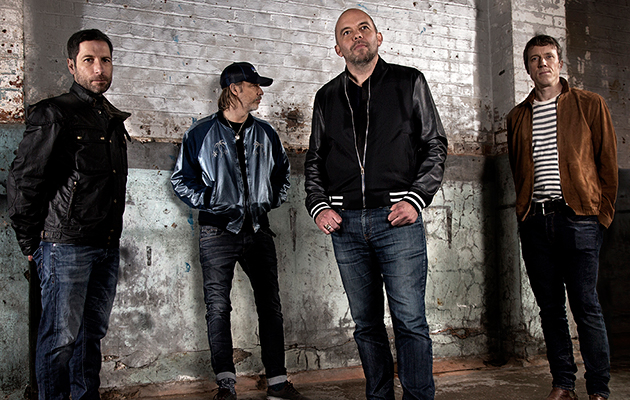By its nature, folk music is a form with deep reverence towards the past. For an aspiring young artist this can make it an attractive prospect, a means of stitching one’s self into the fabric of a broader, deeper history. But tradition can also act like a strap or a harness; it takes a musician of great skill or imagination to work within folk’s confines and make something that feels truly new.
Richard Dawson is one of these rare sorts. A singer-songwriter from Newcastle Upon Tyne, his new LP, Peasant – his second for Domino Records imprint Weird World – is the realisation of a truly maverick voice. Bold and dense, tragic and hilarious, this is a record that binds together history, fantasy and personal revelation into a brilliant, uncompromising epic that shines like a beacon of hope in dark times.
Now in his mid-thirties, Dawson has been active in music since his teens; he came up through an avant-garde Tyneside scene, playing alongside improv groups like Jazzfinger and experimenting with drone in his duo project Eyeballs. Time spent out at the DIY fringes has given him room to scratch out a sound that’s all his own: an errant, worldly folk music with a knotty and adventurous quality that evokes the mind-expanded structures of Captain Beefheart, the improvised guitar mangling of Bill Orcutt, or – thinking more laterally – the lunatic English psychedelia of director Ben Wheatley’s A Field In England. Dawson’s songs are wild and urgent, full of spit and blood and vigour. Clawing clanging chords and jagged clusters of fingerpicked notes from a nylon-stringed acoustic guitar played through a cheap amp, his voice swings from a ruddy North Eastern tenor to the mad bellow of a drunken barbarian serenading a packed mead hall. Sometimes his songs follow familiar paths; other times a simple melodic progression completes on an unexpected note, and before you know the whole song is careening off downhill like a wheel of Gloucestershire cheese.
Plain here is Dawson’s growing skill as a songwriter and scholar. The album has a concept of sorts, its songs set in an imagined Bryneich – an Old Welsh name for the territory that stretched from Scotland to the Tyne in the period after the Romans departed Britain around the 5th Century AD. Every one of Peasant’s 11 tracks feature a one-word title, each one a sort of medieval archetype or figure of folklore – “Herald”, “Ogre”, “Prostitute”, “Shapeshifter”. What these titles lack in detail, the songs themselves quickly fill in with lashings of lurid prose. “I steep the wool in a cauldron of pummelled gall-nuts afloat in urine,” starts “Weaver”, a tale of textile work that could be plucked straight from a witch’s spell-book, while “Shapeshifter” is an example of Dawson’s tale-telling at its more fantastical, an account of a journey into somewhere called the Bog Of Names that takes a turn into misadventure: “Now I’m stuck fast/Calves sorry henges/Glued with the silence of newts in the gloaming…” In a bizarre twist of the sort that is quite characteristic of Dawson’s writing, the narrator is saved by some curious tailed humanoid who presents him with a potato, escorts him back to civilisation, then disappears into the night.
The songs of Peasant largely conform to the themes popular in traditional folk – personal tragedy, capricious sprites, the cruel hand of fate – but always with a rich seam of imagination. The rousing “Ogre” – subtitled ‘The Parent’s Crusade’ – is the tale of a missing child that Dawson conducts with the voices of a rowdy group chorus, as if a search party are booming out a song as one to keep spirits up. The droning, dread-laced “Hob”, meanwhile, has the ring of a Brothers Grimm tale. A baby is dying of whooping cough, so his family take him to the opening of a cave and enact a simple folk ritual, promising that if the spirits save the child’s life
they’ll be forever indebted. He is revived, and grows into a strapping young man – but then,
one day, comes a knock
at the door.
Peasant differs from Dawson’s previous albums in that nothing here is based in the present day. There is nothing quite like “The Vile Stuff” from 2014’s Nothing Important, that commences with the tale of a school trip that takes a messy turn through the addition of a cocktail of spirits smuggled in a Coca-Cola bottle. Still, gaze into these songs and you spot contemporary concerns buried within. “Soldier” is a first-person tale of a fighter preparing to sail out to some distant conflict. Trembling with his comrades on the eve of battle, he dreams of a peaceful life with his beloved. But Dawson says he wrote the song while on tour around the time of the EU Referendum, and you can hear something of that in its longing for domestic bliss. “Let’s betroth without delay/Pack the horse and ride away,” he sings, “To some better place/Where we might raise a family.” Through these songs, a question recurs: how to keep yourself
and your loved ones safe in a world that grows darker and more uncertain
by the day?
This album sounds broader and richer than Dawson’s earlier work, winding in new sounds and instruments. In a neat echo of the album’s familial themes, the harpist Rhodri Davies – a longtime collaborator – appears, and brings his sister, violinist Angharad Davies, and his father John Davies of Aberystwyth Jazz Band along
for the ride.
Elsewhere, Dawson appears out to jolt or confront the listener with sudden bursts of jarring noise or unlikely aggression. Midway through “Prostitute”, a screeching synth suddenly swoops in like a falcon, before disappearing to whence it came. The booming “Scientist”, meanwhile, whips up quite the sturm und drang. There is a hectoring chorus of voices, massed hands clapping in thundering rhythm – a nod to Dawson’s beloved qawwali music – and some furious guitar picking that lifts the track to a plane of near-delirium. Dawson has compared the track to Iron Maiden, which is not entirely off base.
Peasant will not be for all. Dawson’s music remains wild in tooth and claw, and while this is his most approachable outing so far, little effort has been made to clean off any rough edges for a mainstream audience. Elsewhere, its make-believe qualities may scare off the casual listener – not everyone will be prepared to follow the tale of a man hunting a blind monk who owns a magical artefact named the Pin Of Quib (“Masseuse”). But it is a mark of its maker’s strange alchemy that he manages to wind in all these factors and make something not just accessible, but overflowing with joyful spirit. On the first chorus of “Soldier”, that song written around the Brexit vote, Dawson sings, “I am tired, I am afraid/My heart is full of dread…” But come the final chorus, his spirits have rallied: “My heart is full of hope,” he booms. Peasant is an imaginary epistle from a bleak, mud-sodden Middle Ages. But the themes that run through it are universal, and the manner in which they are delivered – with courage, faith and several barrels of bloody-mindedness – marks it out as a record that deserves to be cherished in this or any age.
Q&A
You recorded Peasant in the middle of last year. How do you feel about it now, with a bit of remove?
I think I feel more involved than I would typically feel at this stage. I usually move on quite quickly, but it’s a bigger piece of work, this one, and I still feel excited about getting it out there. I still feel quite engaged with it, in a way.
How did the album’s recording differ from your earlier work?
It was a lot more involved. There were some key differences, often in quite small ways. I wanted this album to be very wooden, sinewy sounding… almost like some kind of creaking animal or a ship falling to bits. In the past we’ve always recorded a guitar and amped up everything – the singing and the instruments, to get that amplified texture. But with this one, there were a lot of microphones positioned at different ranges, and we worked a lot more layers into the sound. Angharad’s violin work is quite inherent to the whole thing, which was always part of the initial conception – that there should be a sort of layer of hoar frost over everything, or maybe dew, or slime, or moss, depending on the song. And Rhodri’s harp… I liked the idea of it being a sort of unspoken character, just sort of present throughout. We had some definite starting points – not just arrangement choices, but ideas that were part of the conception of the story.
The big choruses really stand out…
The chorus is eight or nine people, all really good friends of mine. I think that’s kind of key to everything. It’s not so much about how well they can play, but how well they can communicate… There’s some musicians and singers, and some non-singers to give a nice mix, not too ramshackle. We had a chorus on Glass Trunk, and that was a lot more loose, but this needed a degree of precision.
That comes back to a theme running through the album – of family, and wanting to look after people close to you.
For sure. Notions of family don’t have to be blood. Notions of community don’t have to be geographical. And it’s good to talk about. It’s true for most people that even in good times, just trying to get by can be an incredible struggle. But especially when times aren’t so great, the increased pressure… how do you manage to make or say something meaningful in the face of desperation?
The LP is set in Bryneich, an Old Welsh name for the North Of England around the 6th century. Did you do this so you could research the setting, or did it offer more of a blank canvas?
Well… you’ve maybe hit the nail on the head with both. It’s a happy balance. I had no interest in making a historical album, but similarly I have no interest in doing a Game Of Thrones thing. There was a lot of research, because I’m not particularly a history buff. It was after the withdrawal of the Roman Empire, and there was an influx of all kinds of different influences – the Saxons and the Vikings, and all of the feuds and wars between different factions, different tribes. That period in history is sketchy, there’s not so much documentation. It just seemed like a very pertinent setting… a time or place which is in great flux at a really crucial hinge in history.
The Bog Of Names, the Pin Of Quib… are these things of your invention, or did you discover reference to elsewhere?
Well, with all those things, it’s maybe a bit foggy, there’s not always a yes or no answer. As with the last album, where I might mention that I cut my hand really badly [on “The Vile Stuff”]… what happened in my life was more of a graze. But I do know somebody who has cut their hand badly. It’s OK to… not exaggerate, but to magnify. You’re just looking at it more closely.
Your music is full of English signifiers, so it’s interesting that one of the influences on your music you can really hear on Peasant is qawwali…
I mention qawwali a lot. I love Nusrat [Fateh Ali Khan]. I love the power and the fire. But whether or not it’s more in there than a bunch of other music… you know when you’re asked what might have influenced something, really hopefully the aim of the game is that there should be hundreds and thousands of different musics in any music. Instead of mentioning any canonised songwriter, it’s more helpful to mention something that is maybe not so prevalent.
Is Peasant an optimistic record?
Maybe… perhaps not. It’s close to being optimistic. You have to be careful, because you don’t want to be grandiose. But on the other hand, the aim of the game… I think there has to be some function or some usefulness. I think this is why the album feels different. I’ve never been so concerned with people hearing my music, but this one I’m really desperate for people to hear. I hope there is some kind of positive spell contained in the whole piece. It feels like it can only come to life if it’s heard by people. I’m not sure it’s an optimistic album. My other records have wound their way back to the beginning, and this one was shaping up that way, but it didn’t feel appropriate, with things being so out of whack. The last song is horrible, really horrible. But there’s always reason for hope.
INTERVIEW: LOUIS PATTISON
The August 2017 issue of Uncut is now on sale in the UK – featuring David Bowie on the cover. Elsewhere in the issue, there are new interviews with The War On Drugs, Steve Earle and Jah Wobble, we countdown Radiohead’s 30 Greatest Songs and remember Gregg Allman. We review Peter Perrett, Afghan Whigs, ZZ Top and Peter Gabriel. Our free CD features 15 tracks of the month’s best music, including Peter Perrett, Floating Points, Bedouine, Public Service Broadcasting, Broken Social Scene and more.


